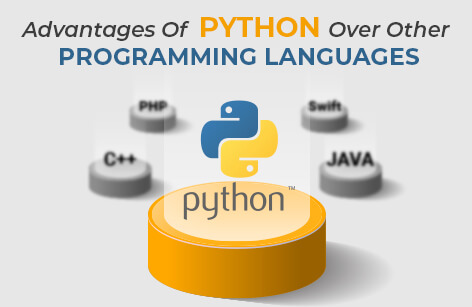Benefits of Python
Python is a versatile and powerful programming language that has gained immense popularity in recent years. It offers numerous benefits and advantages that make it a preferred choice for developers and organizations alike. In this article, we will delve into the various benefits of Python and explore why it has become such a dominant force in the programming world.
Simplicity and Readability
One of the key advantages of Python is its simplicity and readability. Its syntax is designed to be intuitive and easy to understand, making it an ideal language for beginners and experienced developers alike. The use of whitespace indentation instead of braces enhances code readability, making it easier to maintain and debug.
Versatility and Flexibility
Python is a versatile language that can be used for a wide range of applications. Whether you are developing web applications, scientific computing solutions, data analysis tools, or even artificial intelligence algorithms, Python has the libraries and frameworks to support your needs. Its extensive standard library and third-party packages make it easy to accomplish complex tasks with minimal effort.
Rapid Development
Python’s simplicity and ease of use contribute to its rapid development capabilities. With its concise syntax and extensive libraries, developers can quickly prototype and implement solutions, reducing development time significantly. This makes Python an excellent choice for projects with tight deadlines or when quick iterations are required.
Large and Active Community
The Python community is vibrant, enthusiastic, and constantly growing. It is supported by a large number of developers, enthusiasts, and organizations worldwide. This active community ensures that Python remains up-to-date, secure, and constantly evolving. It also means that developers have access to a vast array of resources, libraries, and frameworks to enhance their productivity and solve complex problems.
Cross-Platform Compatibility
Python is a cross-platform language, which means that code written in Python can run on various operating systems without any modifications. This makes it highly portable and convenient, as developers can write code once and run it anywhere. Whether you are using Windows, macOS, or Linux, Python offers seamless compatibility and ensures that your code works consistently across different platforms.
Integration Capabilities
Python provides excellent integration capabilities, allowing developers to easily integrate Python code with other languages and systems. It can be seamlessly integrated with C, C++, Java, and .NET, among others. This flexibility enables developers to leverage existing code, libraries, and frameworks, enhancing development efficiency and reducing duplication of effort.
Scalability and Performance
Contrary to popular belief, Python can deliver excellent performance and scalability. With the use of efficient libraries like NumPy, SciPy, and pandas, Python can handle large datasets and complex computations with ease. Additionally, Python’s simplicity and readability make it easier to optimize and fine-tune code for better performance when required.
Job Opportunities
As Python continues to gain popularity, the demand for skilled Python developers is on the rise. Many organizations across various industries are actively seeking Python expertise for their projects. By learning Python, you open up a world of job opportunities and increase your chances of finding rewarding and well-paying positions.

Python offers a multitude of benefits that make it an excellent choice for developers and organizations. Its simplicity, versatility, rapid development capabilities, large community, cross-platform compatibility, integration capabilities, scalability, and job opportunities contribute to its widespread adoption. By harnessing the power of Python, developers can create robust and efficient solutions, while organizations can benefit from increased productivity and reduced development time. Embracing Python can undoubtedly propel your programming journey to new heights.
Frequently Asked Questions – Benefits of Python
1. What are the advantages of using Python?
Python is a versatile programming language that offers several benefits:
Easy to learn and read
Large standard library
Great community support
Platform independence
Integration capabilities
2. How can Python enhance productivity?
Python provides several features that contribute to increased productivity:
Simple syntax and readability
Extensive libraries and frameworks
Easy integration with other languages
Automated testing and debugging tools
3. What industries benefit from using Python?
Python finds applications in various industries, including:
Data science and analytics
Web development
Artificial intelligence and machine learning
Scientific computing
Finance and banking
4. Is Python suitable for beginners?
Yes, Python is considered one of the best programming languages for beginners due to its simplicity and readability.
5. Can Python be used for web development?
Absolutely! Python has several frameworks like Django and Flask that make web development efficient and straightforward.
6. How does Python contribute to data analysis?
Python offers various libraries, such as NumPy, Pandas, and Matplotlib, which enable efficient data manipulation, analysis, and visualization.
7. Does Python support scientific computing?
Yes, Python is widely used in scientific computing due to its extensive libraries like SciPy and NumPy, which provide advanced mathematical functions and tools.
8. What advantages does Python offer in machine learning?
Python provides numerous machine learning libraries, such as TensorFlow and sci-kit-learn, making it a popular choice for developing and implementing machine learning algorithms.
9. Can Python be used for automation?
Absolutely! Python’s simplicity and extensive libraries make it an ideal choice for automating repetitive tasks, system administration, and scripting.
10. Is Python suitable for large-scale applications?
Yes, Python is used for developing large-scale applications, and its scalability can be enhanced by using frameworks like PyPy and multiprocessing techniques.




